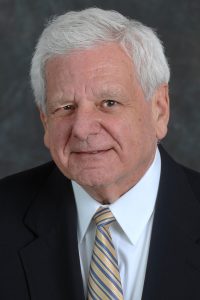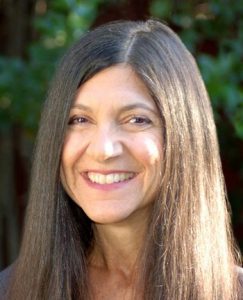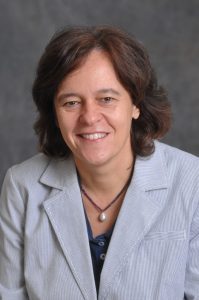Examining the Legacy of Slavery and Racism In an effort to explore social justice issues and their relevance to students' future careers, the School of Public Affairs hosted a film viewing and discussion about the legacy of slavery and racism in the U.S.
By Robin Heffler
As part of a School of Public Affairs effort to explore social justice issues and their relevance to students’ future careers, some 170 students, faculty, and community members recently viewed a film and engaged in a lively discussion about the legacy of slavery and racism in the U.S.
Hosted by Dean Franklin D. Gilliam, with support from the W.K. Kellogg Foundation, participants gathered on Jan. 19 in the screening room of the Acosta Training Complex to see an abridged version of the documentary film, Traces of the Trade.
In the film, which aired on PBS in 2008, producer and director Katrina Browne tells of her shocking discovery that the De Wolfs of Rhode Island, her prominent, Caucasian ancestors, were the largest slave-trading family in U.S. history. Together with nine other De Wolf descendants, Browne retraces the slave-trade triangle — from Bristol, Rhode Island to slave forts in Ghana to a family plantation in Cuba and back to Bristol. Along the way, they struggle with the politics of race, how to “repair” the centuries-long damage of slavery, and their own Yankee culture and privilege.
After the screening, Browne reflected on one cousin’s insistence that he would have gone to Harvard even if he wasn’t from a privileged family. “When the wind is at your back you don’t notice it,” she said. “You don’t realize the forces supporting you as you move forward, but you do when you’re faced with obstacles to success.”
African-American co-producer Juanita Brown noted that “We must recognize that race is complex, and that black and white is only one element. We invite you to see this conversation as the jumping off point for conversations about other people and races.”
Program participants engaged in one-on-one discussions about the film, as well as a question-and-answer session.
“No one wants to associate with the oppressor because of the guilt and shame involved, but we need to acknowledge history and how it plays out in the present,” said Amy Smith, a first-year social welfare graduate student, who had just spent the day discussing white privilege in her class on “Cross-Cultural Awareness.” “And, since racism is a problem that affects everyone, everyone should be part of the solution.”
Associate Professor Laura Abrams, who along with Joy Crumpton and Gerardo Laviña leads the “Cross-Cultural Awareness” class in the Department of Social Welfare, saw the issues raised by the film as important for social workers. “In a helping profession, it’s easy to see clients as having made bad choices rather than seeing their lives as structured by disadvantages and inequalities related to race, class, and gender,” she said.
Gilliam, who served as an early advisor to the film, said the event was the second of a planned series of programs focused on social justice issues. Last year, the UCLA School of Public Affairs had an exchange with the Wagner School of Public Service at New York University, with each school hosting conferences on how to talk about race in the context of graduate education in public affairs.
“We want to do a better job of giving students the analytical tools to examine issues of social justice, which they will need to deal with the people they will be helping when they graduate,” he said.
Gilliam said plans include developing a curriculum, research opportunities, and a summer institute related to social justice. Together with Student Affairs, he also would like to hold social-justice dialogues with undergraduates, who then would dialogue with Los Angeles-area high school students.
Heffler is a Los Angeles-based free-lance writer and former UCLA editor



